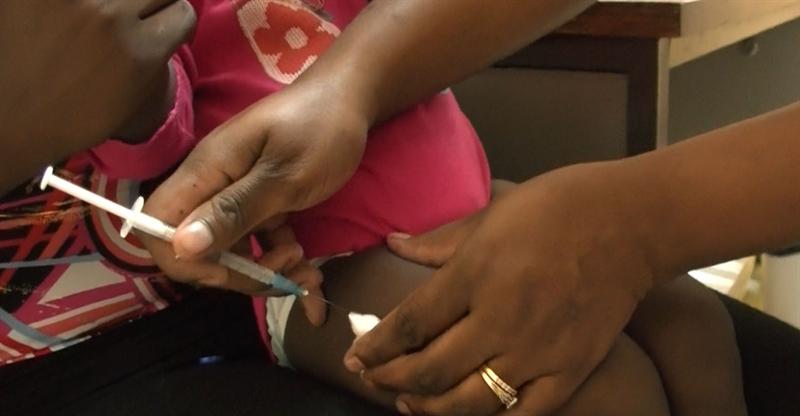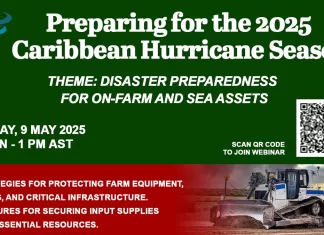Sixty million people are set to benefit from vaccines during Vaccination Week in the Americas.
Countries and territories throughout the Western Hemisphere will reach out to some 60 million children and adults during Vaccination Week 2016 in the Americas, delivering vaccines against diseases like rubella, measles, diphtheria, mumps, whooping cough, neonatal tetanus, influenza, yellow fever, diarrhea caused by rotavirus, bacterial pneumonia, and human papilloma virus (HPV), among others.
The regional launch for Vaccination Week will take place in Kingston, Jamaica, with PAHO Director Carissa F. Etienne, followed by national and multinational launch events throughout the region. Vaccination Week also coincides with a worldwide switch to a new polio vaccine coordinated by WHO and its partners in the Global Polio Eradication Initiative.
Jamaican sprinter Usain Bolt, who holds six Olympic gold medals and 11 world championships, is supporting this year’s Vaccination Week coordinated by the Pan American Health Organization/World Health Organization (PAHO/WHO).
“Just as Olympians are committed to winning the gold, we are committed to making sure that you, your family and your friends are as healthy as possible,” said PAHO Director Carissa F. Etienne. “We invite you to get up to date on your vaccines during the 14th annual Vaccination Week in the Americas.”
Thirty-six countries and territories in the Americas are among the 155 worldwide that will participate in a global switchover from the traditional trivalent (targeting three viral strains) oral polio vaccine (tOPV) to the newer bivalent (targeting two strains) oral vaccine (bOPV), between April 17 and May 1. The global switch is being coordinated by WHO and its partners in the Global Polio Eradication Initiative. The switch is possible because type 2 wild polio has been eradicated and is the first major step toward the eventual removal of all OPV.
Vaccines are one of public health’s most cost-effective prevention measures, and their widespread use in the Americas has led to major achievements such as the eradication of smallpox (1971) and the elimination of polio (1991) as well as rubella and congenital rubella syndrome (2015). Vaccination Week builds on these efforts by seeking to ensure that the benefits of vaccines reach communities that traditionally have lacked access to regular health services. These include indigenous and Afro-descendant communities, border populations and people living in remote or hard-to-reach areas.
In addition to vaccines, at least 21 countries and territories also plan to use Vaccination Week to promote other types of prevention. A particular focus will be on mosquito-control activities to prevent or respond to ongoing outbreaks of zika, dengue and chikungunya. Other complementary activities include de-worming, vitamin A supplementation, distribution of oral rehydration therapy, chronic disease and obesity screening, prenatal checks, dental health activities, childhood growth and development screening, work wellness and school health programming, and the vaccination of pets.
PAHO Director Carissa Etienne will travel to Kingston, Jamaica, for the regional launch of Vaccination Week. More than 400 people are expected to attend, including Jamaica’s minister of health and other government officials and representatives of PAHO partner organizations including the United Nations Childrens Fund (UNICEF), the Joint United Nations Program on HIV/AIDS (UNAIDS), the United Nations Development Program (UNDP), the Office of the United Nations High Commission for Human Rights (OHCHR), the U.S. Centers for Disease Control and Prevention (CDC) and other key partners.
Vaccination Week in the Americas started in 2003 as part of a regional response to an outbreak of measles in the Americas, which took place between Venezuela and Colombia in 2002. Building on a long tradition of strong national immunization programs in the Americas, the ministers of health of the Andean countries proposed the idea of a coordinated international immunization initiative. Since its inception, Vaccination Week has become a key driver of progress in immunization in the Americas and a yearly opportunity to highlight the essential work of national immunization programs.
Other WHO regions took inspiration from the success of Vaccination Week and began their own initiatives during the past decade, efforts that eventually led to the creation of World Immunization Week in 2012.
Vaccination Week 2016 is held from April 23-30.





